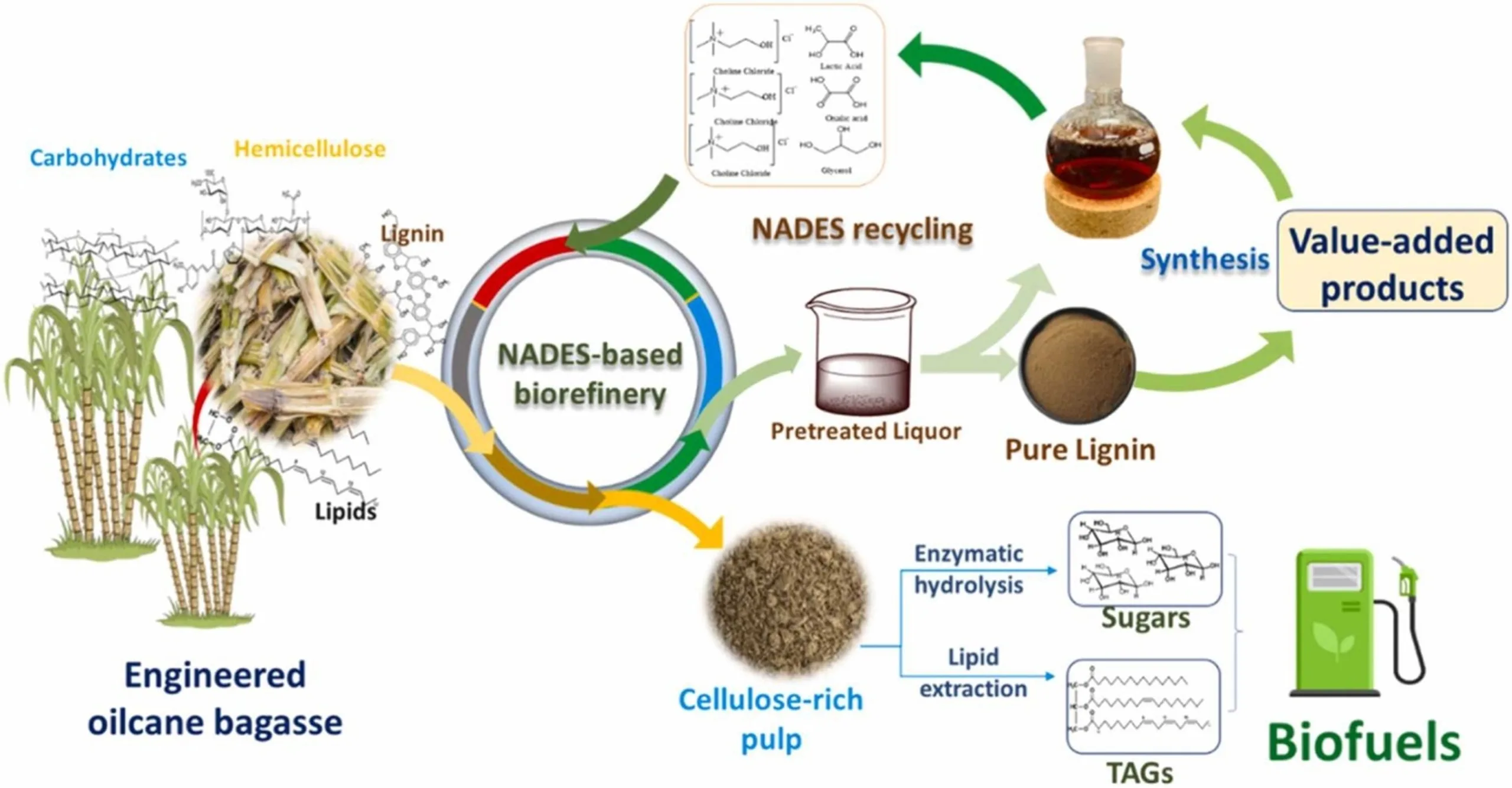Natural Deep Eutectic Solvents (NADES) Assisted Deconstruction of Oilcane Bagasse for High Lipid and Sugar Recovery
Themes: Conversion
Keywords: Hydrolysate, Lipidomics
Citation
Raj, T., Singh, V. Jan. 26, 2024. Data from: “Natural Deep Eutectic Solvents (NADES) Assisted Deconstruction of Oilcane Bagasse for High Lipid and Sugar Recovery.” University of Illinois Urbana-Champaign. DOI: 10.13012/B2IDB-3870780_V1.
Overview

In a novel approach, metabolically engineered sugarcane “Oilcane” has been investigated for fractionation of lipid and cellulose-rich pulp, using certain Natural deep eutectic solvents (NADES). The exploration of eco-friendly solvents are at the forefront of harnessing the biofuel potential of modern bioenergy crops. For this, six combinations of NADES were prepared using choline chloride (ChCl) as HBA and lactic acid (LA), oxalic acid (OA) and glycerol (Gly) as HBD and were further explored for pretreatment of oilcane bagasse in a molar ratio of 1:1 and 1:2. The impact of NADES ratio, biomass loading (10–50%), residence time (1–2 h), and temperature (90–140 °C) were evaluated for delignification, lipid content, sugar release after enzymatic hydrolysis. The finding demonstrated that under the optimal condition of ChCl: LA (1:2 molar ratio), 140 °C with 2 h retention time, the lipid content in the pre-treated substrate was increased to 2.5-fold (∼8% w/w) and > 80% glucose yield was achieved after 72 h of hydrolysis of pre-treated bagasse. High solid loading (∼50%) during pretreatment resulted in a similar glucose yield. Furthermore, recycling studies demonstrated that nearly 95 to 98% NADES could be recycled after each pretreatment for up to five consecutive cycles without any significant loss in chemical structure as confirmed by 1H NMR and FT IR. FT IR and XRD analyses of native and pre-treated biomass were performed to visualize the morphological changes during NADES pretreatment and their impact on sugar yield. The findings of the study may be used to establish NADES-based biorefinery for the valorization of lipids, and carbohydrates for fuels and chemicals production.
Data
Illinois Data Bank includes:
- Extractives
- Reaction effects
- Solid loadings
- Lipids quantification